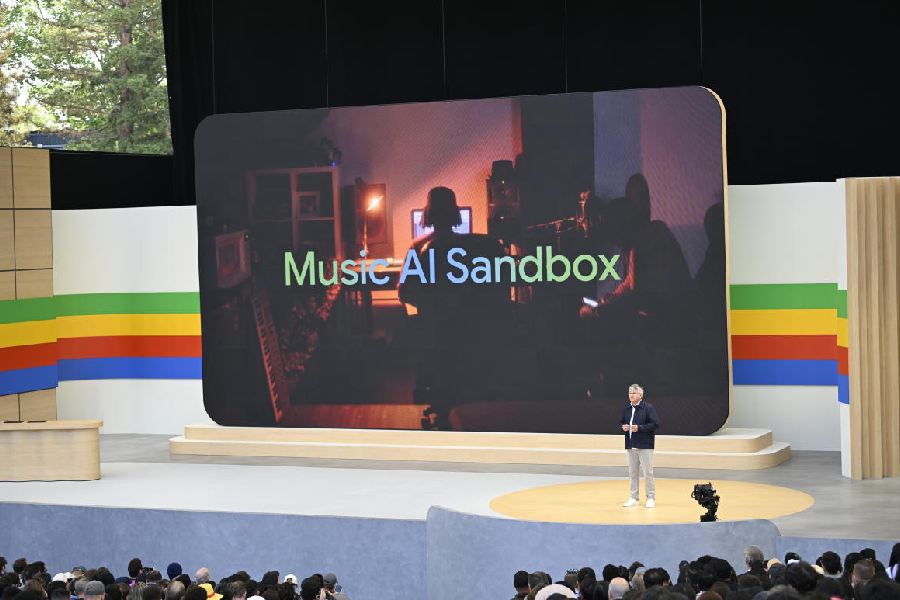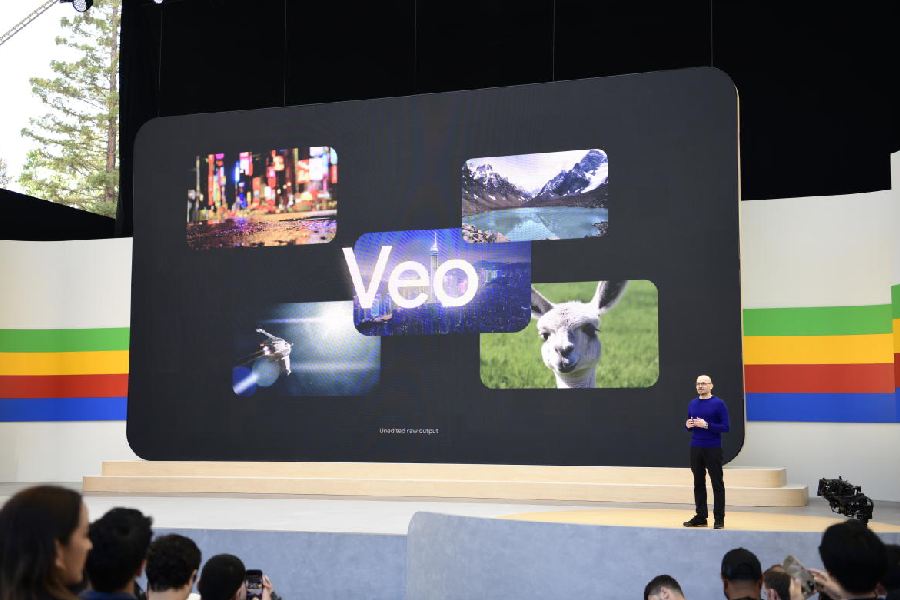On Tuesday, Google made a number of announcements at its Google I/O developers conference. There was (almost) no hardware in sight but the presentation offered an onslaught of AI-focussed updates. Here are a few things you may have missed.
Better search for photos
Google Photos on our phone is packed with pictures and it’s tough to spot the important ones. With a new feature called Ask Photos, you can ask Gemini to search your photos and deliver more focussed results than before. For example: Mention your license plate number, and it will use context clues to find your car in all of the pictures you’ve taken.

Google has unveiled a music-making tool it calls Music AI Sandbox. Google
In a Google blog post, Google Photos software engineer Jerem Selier says the feature doesn’t collect data on your photos that can be used to serve ads or train its other Gemini AI models. Ask Photos is rolling out this summer.
Google Veo
The AI model can come up with different visual and cinematic styles, including shots of landscapes and time lapses. The AI model can create 1080p video clips around a minute long from a text prompt. “We’re exploring features like storyboarding and generating longer scenes to see what Veo can do,” said Demis Hassabis, head of Google’s AI R&D lab DeepMind.
Web filter
Google will now let us search the web. Aren’t we doing that already? Well, Google wants us to have more control.
The company is rolling out a new search filter to show only text-based links in the search results and this filter is named ‘web’. Once you click it, all images, videos or other forms of search results are removed and only classic blue links are displayed.
It may not fix some of the issues facing Google’s search engine but it is a good opt-out button for people who have been angry with the results Google shows.
The ‘All Filters’ option provides access to filters that are not shown automatically.
Project Gameface
Google is bringing Project Gameface, which was announced at Google I/O 2023, to Android. It is an open-source gaming mouse that allows users to use facial expressions and head movements to control a cursor. For example, they can open their mouth to move the cursor or raise their eyebrows to click and drag.
“Through the device’s camera, it seamlessly tracks facial expressions and head movements, translating them into intuitive and personalized control,” Google said in its announcement. “Developers can now build applications where their users can configure their experience by customisng facial expressions, gesture sizes, cursor speed, and more.”
Gemini at Workplace
Google is bringing AI into its Workplace suite of office tools. There will be a button to toggle Google’s Gemini AI in the side panel of many Google apps, including Gmail, Google Drive, Docs, Sheets, and Slides. The helper can answer questions, help you craft emails or documents, or offer summaries of long docs or email threads. And embedded into apps like Docs and Gmail will be a Gemini-powered AI Teammate, which can improve communications between your coworkers and keep track of project files.
Security features
Google is testing a new call monitoring feature that will warn users if the person they’re talking to is attempting to scam them. The feature uses Gemini Nano. If the machine hears you are getting duped, it will give you an onscreen prompt suggesting that you hang up. The feature will work on the device and your phone calls don’t go into the Cloud for analysis. There’s no word on when the scam detection feature will be available.
Music AI Sandbox
Google has been developing a suite of music AI tools called Music AI Sandbox. These tools are designed to open a new horizon for creativity, allowing people to create new instrumental sections from scratch, transform sound in new ways and much more. The tool appears to accept text input and provides short audio clips based on the prompt.










